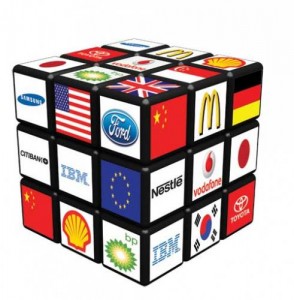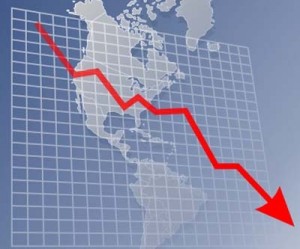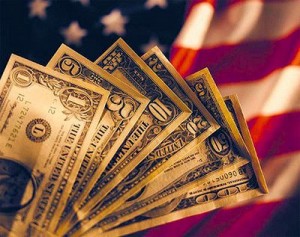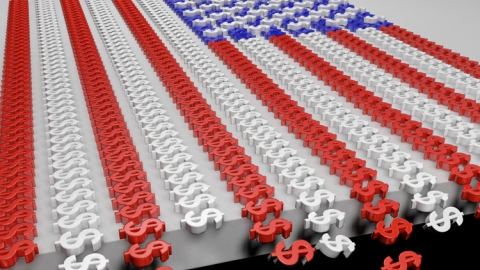It is a strange experience to be in a wilderness in the afternoon, where the bear scat is as big as miniature coke cans, and then be back in the land of malls and McDonalds by dark.
 We hiked a few miles into a small mountain lake at about 2200 meters (over 7000 feet) in Lassen Volcanic National Park (the least visited National Park in America). After 15 minutes of silence at that place, everything extraneous falls away.
We hiked a few miles into a small mountain lake at about 2200 meters (over 7000 feet) in Lassen Volcanic National Park (the least visited National Park in America). After 15 minutes of silence at that place, everything extraneous falls away.
Without a relationship with nature, one has no relationship to anyone or anything. But we humans are social animals, who do not live in nature but build artificial worlds around us. The worlds we construct sit unfittingly on top of nature, and are almost always subconsciously felt to be the primary if not sole reality.
‘The economy’ is shorthand for the built society, and the transactions that people engage in to obtain what they need and what they want. In America, and in a growing number of other countries, that society is inhuman, unsustainable and spiritually destructive.
Nevertheless, the American economic system has become the grid over which an increasingly global economy interwoven, especially in communist China, which is superseding the American capitalist system they’ve emulated.
Now this latest version of the American market system is sinking under its own dead weight. It could topple with a real estate bubble bursting in the People’s Republic, or a nuclear bomb on the Korean peninsula.
The worlds that man makes are just as subject to decay and death as systems in nature. Though the economic, political,  and intellectual powers that be are desperate to sustain the status quo, things can’t go on like this for much longer. ‘Too big to fail’ really means ‘the bigger they are the harder they fall.’
and intellectual powers that be are desperate to sustain the status quo, things can’t go on like this for much longer. ‘Too big to fail’ really means ‘the bigger they are the harder they fall.’
The collapse of the world’s financial sector, originating in America, is still an abstraction to the vast majority of Americans, though it has crushed the job market even as the stock market booms again. Meanwhile the cable networks follow their basic programming strategy of pandering to the personal.
Obtusely, in an economy founded on waste and fueled by debt at every level, the experts talk about “restoring confidence.” Beyond the basic needs of food, clothing and shelter, the economy is psychology, and once the psychology has gone bad (that is, once trust is gone) a new foundation has to be poured.
But we’ve been so bamboozled by fabricated complexity in the markets, designed to inflate worth and wealth, that we’ve lost sight of what the basics even are. The hope is that perennial crisis management is buying America and the world time for fundamental reforms in the global financial infrastructure. But if history teaches anything, it is that for good or ill, societies only change with crisis. And when a crisis is averted, the status quo returns with a huge sigh of relief.
Most people in so-called developing (that is, poor) countries understand the difference between needs and wants. That’s why corruption stands out in much sharper relief in Africa and other places. But in America, and to a lesser degree in Europe (and increasingly in China), the line between needs and wants has become utterly blurred. Indeed, the present  economy depends on that blurring continuing.
economy depends on that blurring continuing.
Previous generations of Americans knew the difference between basic needs and luxuries, because luxuries were anything beyond one’s basic needs. Though many Americans struggle to pay the bills, the amount of unnecessary stuff (from huge houses and vehicles, to a multi-billion dollar entertainment industry, to the new, sacred cow dog sector), the unreality of the economy is woven into the very fiber of our society. That’s true no matter how much the Obama Administration and the media talk about re-opening credit lines for houses, cars, and student loans.
The confluence of economic, political, ecological, and even spiritual factors makes this world order qualitatively different than any in human history. Most people see human history as progressive; some see it as cyclical; I see it as an increasingly insistent question regarding the relationship between human consciousness and nature, culminating in either in radical change at all levels, or a protracted dark age.
To my mind, what we face as human beings is not merely another economic and political crisis, but an intensifying existential challenge to what it means to be a human being.
Life is demanding radical change. Half-measures, much less the stale debate between austerity and spending with respect an economic system that belonged to the last century, are proving woefully inadequate. Physically, the basics are the same; psychologically, everything is in flux.
“And all is seared with trade; bleared, smeared with toil;
And wears man’s smudge and shares man’s smell: the soil
Is bare now, nor can foot feel, being shod.
And for all this, nature is never spent;
There lives the dearest freshness deep down things.”
Gerard Manley Hopkins
Martin LeFevre

